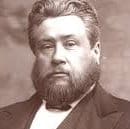A friend phoned from England to ask if I knew where his vicar could stay in Toronto while he experienced the ‘Toronto Blessing’ at the Airport Vineyard. The interest in what is happening here is extraordinary. But instead of urging you to come to Toronto, let me suggest we return to Pentecost where we discover fourteen indispensable signs of the Spirit’s activity – marks that must characterize any authentic movement of God.
The mighty signs of Pentecost attracted a large and curious crowd. Peter rose to address them. He explained that, far from being drunk, the disciples were experiencing the specific outpouring of the Spirit prophesied in Joel. Quickly, he went on to preach Christ, concluding with these words, ‘God has made this Jesus, whom you crucified, both Lord and Christ’ (Acts 2:36).
What signs did the Spirit generate in those who listened to Peter’s sermon? If the phenomena produced earlier among the apostles were to become continuing evidences of his presence, we would expect the Spirit to reinforce their importance. Instead we read of the Spirit opening closed minds and convicting sinful hearts. ‘When the people heard this, they were cut to the heart and said to Peter and the other apostles, “Brothers, what shall we do?”‘ (Acts 2:37). Their ‘hearing’ of the truth convinced them that what Peter said about the crucified and risen Christ was true.
Open minds
The Spirit opened their minds as the first sign of his activity. Had not Jesus said, ‘You will know the truth and the truth will set you free’? Paul later wrote that we are ‘transformed by the renewing of [our] mind’ (John 8:32; Romans 12:2).

No wonder the history of great revivals cannot be separated from the lives of great preachers like Martin Luther, George Whitefield and Jonathan Edwards. The Spirit chooses to penetrate the personality of lost men and women by storming the mind gate.
Faith and repentance
Once the mind is illumined to truth, the Spirit touches the heart by leading the awakened soul to faith and repentance. Many from the crowd ‘were cut to the heart and said … ‘Brothers, what shall we do?”‘ (Acts 2:37), indicating that they believed what Peter said and were deeply convicted. Their infant faith, a gift of God (Ephesians 2:8-9), swept away their scepticism leaving them convicted and fearful of judgement.
Their cry, ‘What shall we do?’ poignantly symbolizes their conviction, their confession, their earnest desire for forgiveness and their openness to walk in a new direction – all elements of genuine repentance.
Repentance, germinating at conversion, blossoms into a lifelong sensitivity towards sin. Alexander Whyte wrote, ‘To know myself… to know the plague of my own heart is the true and only key to all other true knowledge of God and man.’ Sensitivity to sin along with a developing trust in Christ, is an indispensable sign of the Spirit’s presence.
Obedience
Next we discover these new believers obeying Peter’s urging that they be baptized. ‘Those who accepted his message were baptized’ (2:41). No waiting. No more questions. Whenever a convicted sifter asks a representative of God what to do, we know the Spirit is at work producing a desire to please God by doing what is right.
This fourth sign of the Spirit is so indispensable that the apostles responded to the Sanhedrin’s prohibitions by saying, ‘We must obey God rather than men! … We are witnesses of these things, and so is the Holy Spirit, whom God has given to those who obey him’ (5:29-32).

Find a church
We next read that, ‘About three thousand were added to their number that day.’ The fifth sign of the Spirit’s presence is a new desire to join other believers. Those interested in flowers or cricket seek out those with similar interests. How natural that those born from above would immediately search for a local church to join. I find it strange that so many of those enamoured by today’s phenomena instead of strengthening their, admittedly imperfect, churches often leave to found new groups – also imperfect.
Thirst to learn
As we follow along in the text we find that they ‘devoted themselves to the apostles’ teaching’. Whenever the Spirit opens a sinner’s mind to the truth he plants a thirst for doctrine. Apostolic doctrine occupied such a high place on the Spirit’s agenda that he inspired four Gospels, a book of history, twenty-one doctrinal epistles and a book of prophecy!
In his book Revival Dr Martyn Lloyd-Jones decries dead orthodoxy on the one hand while declaring on the other that, ‘No revival has ever been known in the history of churches which deny or ignore certain essential truths … Without a single exception it is the rediscovery of these cardinal doctrines that has led ultimately to revival.’ He goes on to describe how important a recovery of neglected doctrines such as the sovereignty of God, the sinfulness of man, the deity and atonement of Christ, the person and presence of the Holy Spirit, justification by faith, etc. has always been in times of great spiritual activity. An infallible sign of the Spirit’s work is the pattern we see at Pentecost, ‘steadfast attention to the apostles’ doctrine’.
Fellowship
Doctrine was balanced by an adherence to fellowship. Although those present represented different classes, tongues and cultures, they ‘were together’, they went ‘from house to house’ and ‘They were of one heart and one soul’ (Acts 2:44; 2:46; 4:32). Koinonia (fellowship) is the natural outgrowth of the love that Christ said would be a mark of his disciples (John 13:34-35).

Love manifests itself in moving towards other people, not in keeping our distance. In the early church they kept meeting together in large groups ‘in the temple’ for praise and worship and to listen to teaching, but they also gathered in small groups ‘from house to house’. We need both public assembly and informal fellowship in small groups, meeting in homes where we have the opportunity to really get to know and pray for one another.
Breaking bread
Since fellowship can quickly become self-serving, the Spirit always produces, as well, a commitment to the breaking of bread. Bread is the staff of life chosen to remind us of our daily dependency upon Christ who said, ‘I am the bread of life: he who comes to me will never be hungry’, for ‘without me you can do nothing’ (John 6:35;15:5). Like the manna in the wilderness that had to be gathered each day or it would spoil, we must come to Christ each day to remind ourselves of the role of the cross in our atonement, justification and sanctification. Wherever the Spirit moves, God’s people love to gather around the Table of the Lord!
Prayer
That first congregation also, ‘devoted themselves … to prayer. Everyone was filled with awe’ (Acts 2:42-43). When the Spirit reminds us of the glory of Christ as we break bread, he produces within us a sense of reverential awe that moves us to praise.
The early church was often found ‘praising God’ (Acts 2:47). In Antioch, God chose a missionary team in the midst of a worship time (Acts13:2). Paul and Silas, though in jail in Philippi, couldn’t help praising and worship – which happened quicker than they imagined! (Acts 4). The Holy Spirit demonstrated his approval of their prayers by shaking the building.

Generosity
Another immediate evidence of the Spirit is a profound increase in generosity. ‘All the believers were together and had everything in common. Selling their possessions and goods, they gave to anyone as he had need’ (2:44-45). Living as we do in a society driven by the engine of greed – whether we label the engine the free market economy, capitalism or materialism – it may be impossible for us to even image the extent of their generosity.
Their new-found love for Christ opened their tight fists moving them to sell land or possessions to care for those in need. Chapter four records that, ‘No one claimed that any of his possessions was his own, but they shared everything they had.’ The result? ‘There were no needy persons among them’ (4:32,34). Spirit-filled churches are generous.
Harmony
The generosity of the early Christians promoted an seventh sign of the Spirit, harmony. Imagine the diversity of the Jerusalem Church. Country bumpkins from Galilee, sophisticates from the city, religious bigots from the Pharisees and Sadducees, Zealots fresh from preaching revolution, Herodians – the political opportunists of the day – mingled with merchants and fishermen, farmers and artisans, men and women. In spite of this, ‘[they] had everything in common … they continued to meet together … ate together … All the believers were one in heart and mind’ (Acts 2:44,46; 4:32).
Knowing just how precious harmony is the early church dealt quickly with issues such as the deceit of Ananias and Sapphira in Acts 5, the neglect of the Grecian widows in Acts 6, the legalism of Acts 15. Other doctrinal and behavioural aberrations are dealt with in the epistles.

C. H. Spurgeon wrote, ‘I believe there is a deep, secret, essential, vital union between all the elect of God who have been quickened by the power of the Holy Spirit and have been washed in the blood.’
Gladness
With harmony unbroken by jealousy or error we find that, ‘They … ate together with glad and sincere hearts,’ another key sign of the Spirit’s work (Acts 2:46). Before the Spirit can produce a deep sense of gladness, he must make us miserable for our sins by producing clear-cut conviction. While the devil would deceive us into thinking God is a divine spoilsport determined to keep us unhappy, Paul explained to the Lystrans that the true God ‘has shown kindness by giving you rain from heaven and crops in their seasons; he provides you with plenty of food and fills your hearts with joy’ (Acts 14:17). God intends that his people be joyful.
Sincerity
This gladness goes hand in hand with another sign of the Spirit: sincerity (2:46). Jesus reserved his sternest rebuke for hypocrisy (see Matthew 23: 1-3,27-28). Sincerity – what you see is what you get – was so important in the early church that Ananias and Sapphira fell dead because they pretended to be more generous than they were. Peter accused them of lying to the Holy Spirit (Acts 5).
Impact
No wonder these Christians had impact on their society, a fourteenth sign of the Spirit’s work. They were ‘enjoying the favour of all the people. And the Lord added to their number daily those who were being saved’ (2:47).
The life of changed sinners is winsome. A young couple I recently baptized testified at their baptism how they had been influenced to follow Christ by the example of another couple. In a Spirit-induced climate, people in the community are not only impressed favourably but many are converted and the church grows numerically.
Summary
There is no doubt that a further indication of the Spirit’s work at Pentecost was the presence of signs and wonders. ‘Many wonders and miraculous signs were done by the apostles’ (Acts 2:43; see also 4:30; 5:12; 14:3). There is a qualitative difference, however, between these signs and signs claimed today, just as there is a profound difference between New Testament apostles and modern-day ministers. The manifestations at the Airport Vineyard, falling backward unconscious on the floor, roaring, shaking, uncontrolled laughter, etc. find no parallel among apostolic signs.
This is not the place to marshal the biblical data that has led so many down through the ages to believe in the cessation of charismatic gifts and signs. Suffice it to say that once the gospel was authenticated the occurrence of signs and wonders decreased. While Acts begins and ends with preaching – an ongoing and absolutely necessary gospel method – miraculous signs are not present after Acts 19. Although they are mentioned in one of the earliest epistles, 1 Corinthians, they are completely absent in later epistles. If they were of such importance for the life of the church, would not the Spirit have given us guidance in Ephesians or in the three pastoral epist1es? The silence is deafening – while the presence of the fourteen ‘salt and light’ signs isolated above can be attested throughout Scripture!






